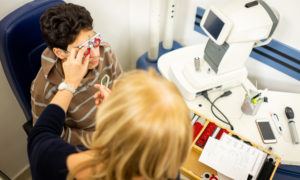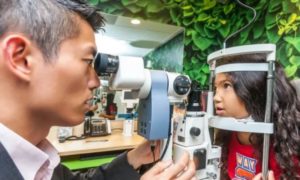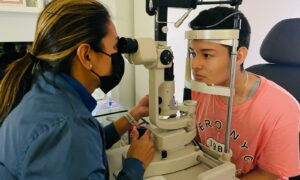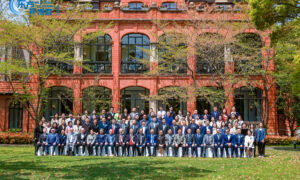October 9, 2020
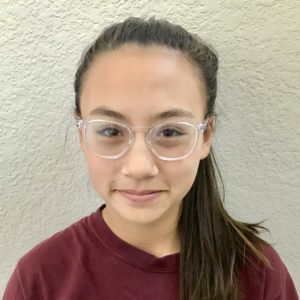 An ongoing CYPRESS study of Sightglass Vision’s novel eyeglasses designed to slow progression of myopia in children “demonstrated the safety and effectiveness of these spectacles” for reducing myopic progression, according to 12-month results presented today at the American Academy of Optometry’s annual meeting.
An ongoing CYPRESS study of Sightglass Vision’s novel eyeglasses designed to slow progression of myopia in children “demonstrated the safety and effectiveness of these spectacles” for reducing myopic progression, according to 12-month results presented today at the American Academy of Optometry’s annual meeting.
Subjects were 58 percent female with an average integer age of 8.1 years (SD ± 1.2 years) at screening. At baseline, the mean spherical equivalent refraction (SER) was -2.01D (SD ± 0.9 D) using manifest refraction, mean cycloplegic autorefraction was -1.94 D (SD ± 1.0 D), and mean axial length (AL) was 24.02 mm (SD ± 0.77 mm). At 12 months, the mean difference in SER progression for Test 1 vs. control was 0.40D (p<0.0001), representing a 74 percent reduction, and Test 2 vs. control was 0.32D (p<0.0001), representing a 59 percent reduction. The difference in AL progression for Test 1 vs. control was 0.15 mm (p<0.0001) and Test 2 vs. control was 0.10 mm (p=0.0018). All measures of visual acuity were clinically stable, and there were no adverse events related to the test lenses through Month 12. Based on results from the subject and parent questionnaires, the investigational lenses were well-tolerated, both visually and cosmetically.
SightGlass Vision, Inc. is a clinical-stage life sciences company focused on ending myopia. Headquartered in Palo Alto, California, SightGlass is developing spectacle lenses to reduce the progression of myopia in children. SightGlass was founded in 2016 by vision researchers Professors Jay and Maureen Neitz, and Dr. Thomas Chalberg, a serial entrepreneur in the biotechnology and medical device sectors. For more information, please visit www.sightglassvision.com.




